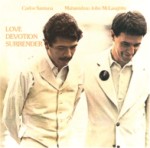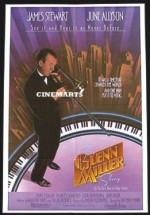|
Music
Jazz 102
A. Farjad Ahmed
It's taken me all my life to learn what not to play.
--Dizzy Gillespie
 Now I know how Salman Rushdie felt when the Ayatollah issued a fatwa calling for his death. My situation may not be that adverse but the much feared Jazz Police has issued a Jazz fatwa: they have asked their followers to destroy my entire CD collection. My cardinal sin: I have dared to include Kenny G in the same list alongside Miles Davis, Cannonball Adderley and the other icons of Jazz. I have also been accused of the lesser charge of being a misogynist for I did not include any of the sultry songstresses. Since I do fear the destruction of my coveted CD collection, I have decided to cave-in and publicly renounce Kenny G. From now on, I shall never write, utter the name Kenny G, unless it is denigrating (To Kenny G), and October 26, 2007 -- the day this magazine graciously published my previous article -- shall be remembered (with apology to President Roosevelt) “ a day that shall forever live in infamy”. With this declamation, I hope to placate the Jazz Police. Now I am posed with a new problem: the much maligned Kenny G needs a respectable replacement -- there are plenty; I, however, would like to recommend Jean Luc Ponty's 1985 album Open Mind -- no pun intended. If your image of a Jazz musician is: (a) they are typically of African American descent (b) clean cut and (c) play some kind of brass instrument, then JLP is diametrically opposite: He is French, white, and plays the violin, the electric violin, to be precise. This album, though very electric, generates some high voltage fusion with Chick Corea and George Benson lending their talents on three tracks. Good stuff. Now I know how Salman Rushdie felt when the Ayatollah issued a fatwa calling for his death. My situation may not be that adverse but the much feared Jazz Police has issued a Jazz fatwa: they have asked their followers to destroy my entire CD collection. My cardinal sin: I have dared to include Kenny G in the same list alongside Miles Davis, Cannonball Adderley and the other icons of Jazz. I have also been accused of the lesser charge of being a misogynist for I did not include any of the sultry songstresses. Since I do fear the destruction of my coveted CD collection, I have decided to cave-in and publicly renounce Kenny G. From now on, I shall never write, utter the name Kenny G, unless it is denigrating (To Kenny G), and October 26, 2007 -- the day this magazine graciously published my previous article -- shall be remembered (with apology to President Roosevelt) “ a day that shall forever live in infamy”. With this declamation, I hope to placate the Jazz Police. Now I am posed with a new problem: the much maligned Kenny G needs a respectable replacement -- there are plenty; I, however, would like to recommend Jean Luc Ponty's 1985 album Open Mind -- no pun intended. If your image of a Jazz musician is: (a) they are typically of African American descent (b) clean cut and (c) play some kind of brass instrument, then JLP is diametrically opposite: He is French, white, and plays the violin, the electric violin, to be precise. This album, though very electric, generates some high voltage fusion with Chick Corea and George Benson lending their talents on three tracks. Good stuff.
It is not easy being a Jazz musician. As it is the music industry is ruthless and competition is cutthroat, but it is all the more difficult if you are trying to eke out a living as a Jazz artist. The road to fame, if you can get there, is long, arduous, and frustrating. In the past half century, Jazz has lost many promising talents to commercialism, primarily Rock n Roll and Hip-hop. However, this diaspora has not always been one way, a number of rock musicians have dabbled with Jazz: Carlos Santana and Jeff Beck instantly come to mind. Carlos Santana's 1972 duet with guitar maestro John McLaughlin titled Love, Devotion, & Surrender, is a classic by any standard, while his 1980 effort Swing Of Delight, - though featured Jazz stalwarts like Herbie Hancok, Ron Carter, Tony Williams et al, somehow falls short of expectations. Nonetheless, Swing Of Delight has some interesting song titles: “Swapan Toree”, “Phuler Matan” etc. Then there is Jeff Beck, an established hard core rock guitarist, who made his name in the 60s with the famous blues band The Yardbirds, replacing guitar god Eric Clapton; after leaving Yardbirds he was replaced by Jimmy Page- he formed The Jeff Beck Group featuring the budding Rod Stewart on vocals. Rod Stewart departed and after some short stints, Jeff Beck teamed up with producer George Martin (of Beatles fame), and in 1972 released Blow By Blow. The unmistakable influence of Jazz in this album sent a bouncer (or a curve ball depending on whether you are a cricket or a baseball fan) to his fans. Excellent guitars; one of the first uses of the guitar “talk box”. The follow up album Wired (circa 1976), also produced by George Martin, featured Jan Hammer (Miami Vice Theme) on keyboards and drums.
 Recommended viewing: Though it is common to feature Jazz music on movie soundtracks, there have not been many movies on Jazz, sadly Hollywood has been less than forthcoming in its treatment of this wonderful art form. Nevertheless, the following movies are good examples where Hollywood has, at times, risen to the occasion and churned out some real gems. We start off with The Lady Sings The Blues starring Diana Ross as Billie Holiday. Released in 1972, the movie follows the troubled, and tragic, life of the subliminal Jazz diva Billie Holiday. The movie was nominated for five Oscars, and went on to win two. Francis Ford Coppola's The Cotton Club (1984), though not one of the master's greatest works, is set in the 1920's and features some great Jazz music of the era, particularly Duke Ellington and Cab Calloway. Bird - starring Roger Whittaker and directed by Clint Eastwood- is based on the life of Charlie “Bird” Parker, the king of bop (Bop is a Jazz movement). This movie, released in 1988, firmly established Clint Eastwood as a serious movie director and Roger Whitaker's riveting performance earned him an Oscar nomination. Named after Miles Davis' classic 1955 album, 'Round Midnight stars real life Jazz saxophonist Dexter Gordon and is a fictional account of a Jazz musicians' life. Herbie Hancock's original score won him an Oscar and Dexter Gordon was nominated for the Best Actor role in the film. Offbeat director Spike Lee's 1990 flick Mo Better Blues, starring Denzel Washington and Wesley Snipes, is a complicated tale of two passionate Jazz musicians and features music by Brandford Marsalis. Released in 1953, The Glenn Miller Story is based on the life of Glenn Miller and stars Jimmy Stewart, with cameo appearances by drummer Gene Krupa and trumpeter Louis Armstrong. Incidentally the first “talkie” movie was The Jazz Singer - released in 1927. The movie is more about love and the estranged relationship between a father and a son, than Jazz music. The Jazz Singer was remade twice, in 1952 and 1980, but strictly speaking, never featured any “Jazz singers”, to the point that the 1980 remake actually starred Neil Diamond with Sir Laurence Olivier and was nominated for a Grammy. The Golden Globes nominated the movie on three categories: Best Actor (Neil Diamond), Best Picture, and Best Original Song (America), but the movie went on to “win” the ignominious Razzie awards on five categories: Worst Actor (Neil Diamond), Worst Supporting Actor (Sir Laurence Olivier), Worst Song (You baby baby), and Worst Director so much for awards ! Recommended viewing: Though it is common to feature Jazz music on movie soundtracks, there have not been many movies on Jazz, sadly Hollywood has been less than forthcoming in its treatment of this wonderful art form. Nevertheless, the following movies are good examples where Hollywood has, at times, risen to the occasion and churned out some real gems. We start off with The Lady Sings The Blues starring Diana Ross as Billie Holiday. Released in 1972, the movie follows the troubled, and tragic, life of the subliminal Jazz diva Billie Holiday. The movie was nominated for five Oscars, and went on to win two. Francis Ford Coppola's The Cotton Club (1984), though not one of the master's greatest works, is set in the 1920's and features some great Jazz music of the era, particularly Duke Ellington and Cab Calloway. Bird - starring Roger Whittaker and directed by Clint Eastwood- is based on the life of Charlie “Bird” Parker, the king of bop (Bop is a Jazz movement). This movie, released in 1988, firmly established Clint Eastwood as a serious movie director and Roger Whitaker's riveting performance earned him an Oscar nomination. Named after Miles Davis' classic 1955 album, 'Round Midnight stars real life Jazz saxophonist Dexter Gordon and is a fictional account of a Jazz musicians' life. Herbie Hancock's original score won him an Oscar and Dexter Gordon was nominated for the Best Actor role in the film. Offbeat director Spike Lee's 1990 flick Mo Better Blues, starring Denzel Washington and Wesley Snipes, is a complicated tale of two passionate Jazz musicians and features music by Brandford Marsalis. Released in 1953, The Glenn Miller Story is based on the life of Glenn Miller and stars Jimmy Stewart, with cameo appearances by drummer Gene Krupa and trumpeter Louis Armstrong. Incidentally the first “talkie” movie was The Jazz Singer - released in 1927. The movie is more about love and the estranged relationship between a father and a son, than Jazz music. The Jazz Singer was remade twice, in 1952 and 1980, but strictly speaking, never featured any “Jazz singers”, to the point that the 1980 remake actually starred Neil Diamond with Sir Laurence Olivier and was nominated for a Grammy. The Golden Globes nominated the movie on three categories: Best Actor (Neil Diamond), Best Picture, and Best Original Song (America), but the movie went on to “win” the ignominious Razzie awards on five categories: Worst Actor (Neil Diamond), Worst Supporting Actor (Sir Laurence Olivier), Worst Song (You baby baby), and Worst Director so much for awards !
Jazz Publications: As with everything else nowadays, the Internet is the best place for information on Jazz. But a Google search for “Jazz” will probably yield a million results! There are numerous articles, and research publications on Jazz available on the Internet but as far as print media is concerned, the oldest and perhaps the most prestigious Jazz magazine has to be Downbeat (www.Downbeat.com). Other well-respected publications include Jazziz (www.jazziz.com), Cadence (www.cadencebuilding.com), and the Canadian Jazz magazine Coda (www.coda1958.com). There are many books on Jazz as well, but we shall leave that for next semester in Jazz 103.
Copyright (R) thedailystar.net 2007 |
